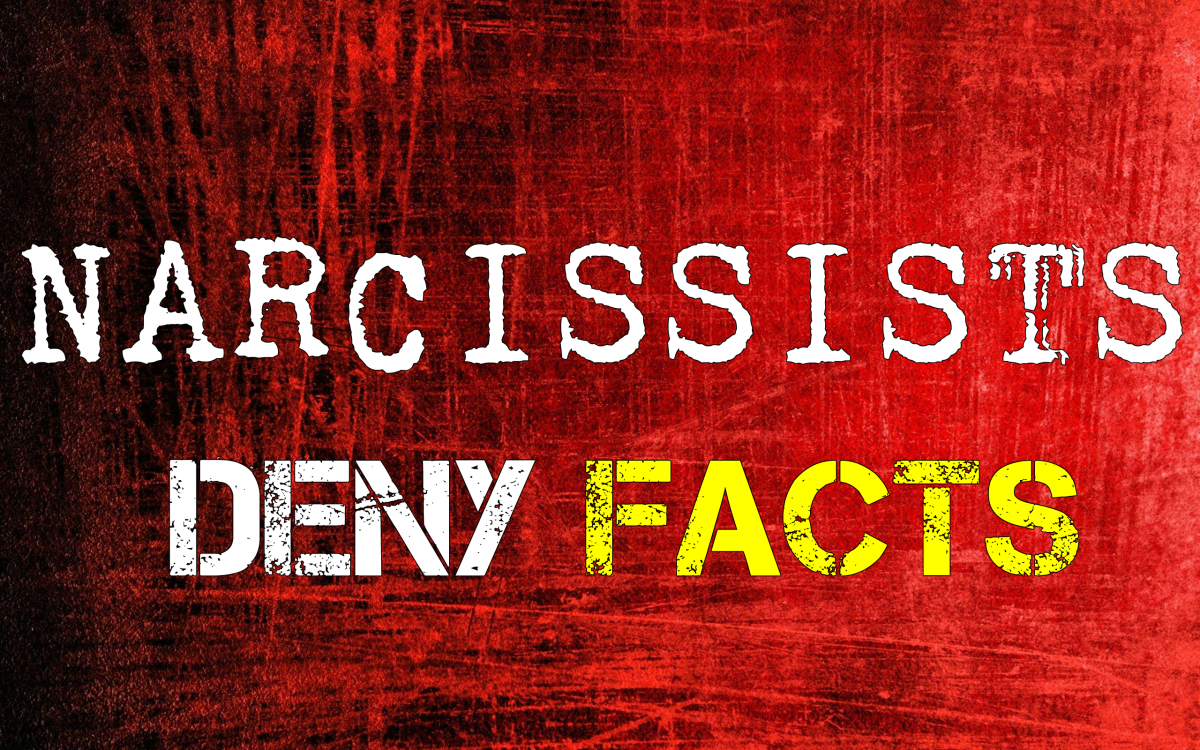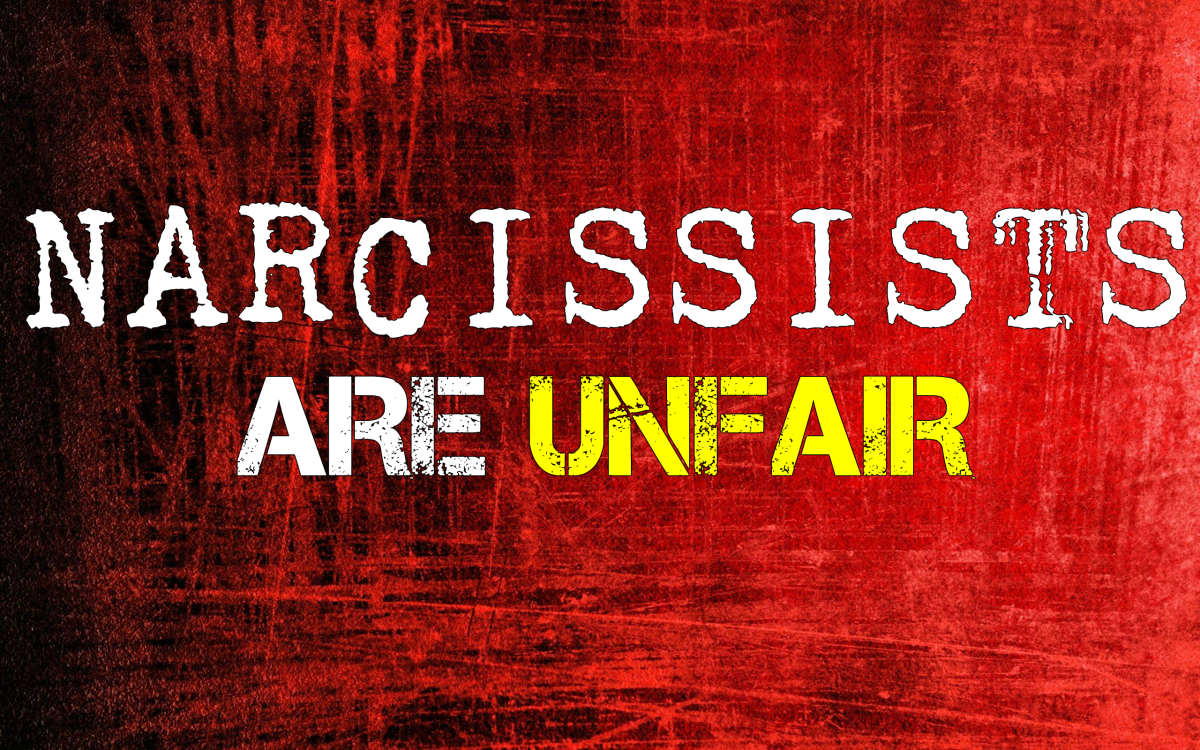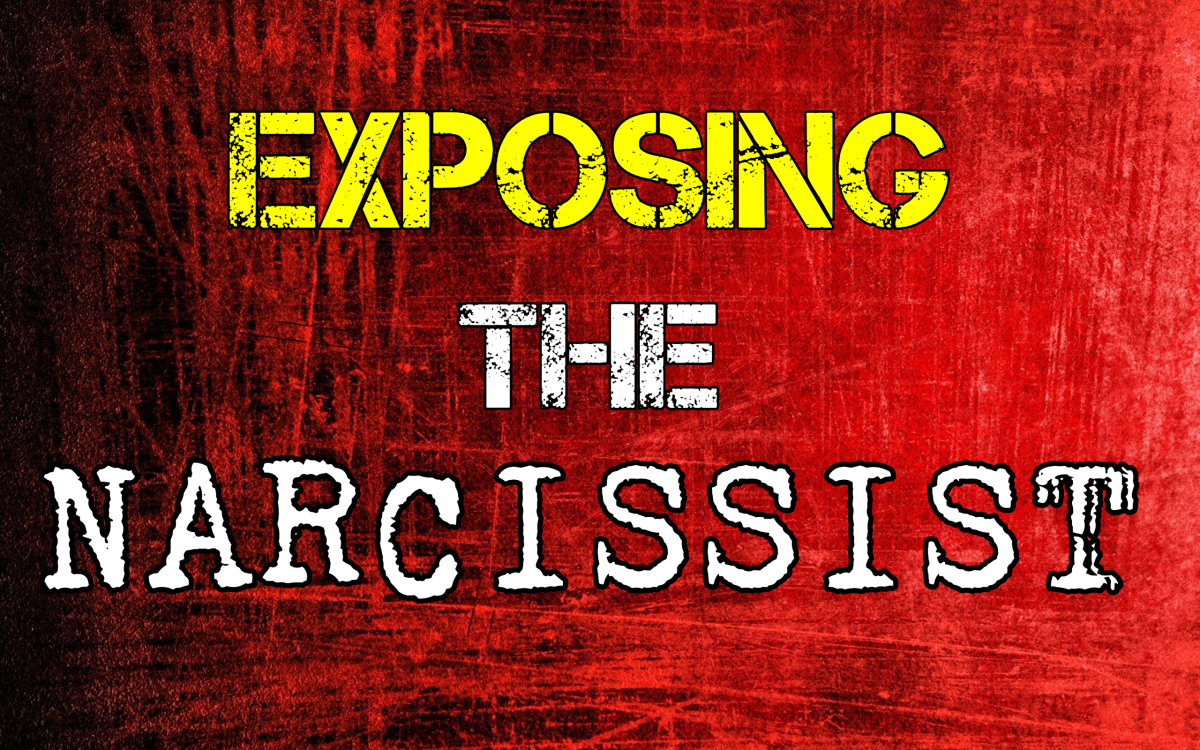The Psychology Query - Number 2: Are Narcissists Psychotic?

Before I answer the next question I wanted to touch on something I think it is important to remember when dealing with any type of mental disorder. While we all want to believe that what defines someone with a “mental illness” are things that are drastically different from anything we know from, the truth is most disorders are defined by characteristics we all have experienced to one degree or another. I don’t have to define depression or anxiety, you know what it is like to feel nervous or down in the dumps. You undoubtedly have things you fear and most will have something they’d much prefer to avoid if possible that they believe others will find silly. Everyone has certain personality characteristics that don’t help them make their way in the world and they’d like to change. If I ask for volunteers, who out there is willing to stand up in front of a crowd to deliver a short presentation? Hmmm, many of you are now staring down at your desks for fear I may decide to pick you, voluntary or not.
While hopefully, most of us will not experience some of the rarer symptoms such as those that are found in psychotic disorders, we are no stranger to the characteristics that define other mental disorders. All of us have experienced many of them ourselves, and observed others in those around us. As much as you don’t want to believe it is true, we each share the same propensity to develop emotional difficulties and mental problems. Human beings are fragile that way.
But without one side of the coin, the other isn’t possible and without the problems associated with out very human emotions we could never fully appreciate mental well-being. Our weaknesses are what let us truly see how good things are when all well. The only difference between those of us who suffer from transient symptoms that are a normal part of life and those who suffer from what is defined as a mental disorder is the degree to which the problem impinges on our ability to function in the world and fully enjoy life’s gifts.
Each of us is vulnerable to experience emotional difficulties and uncertainties, fears and self-doubt. Let us understand this and feel compassion not fear or revulsion for those who may experience these things more severely to the point they need help to return to a place where their day to day difficulties can be coped with and overcome or at least tolerated at an acceptable level.
Hiding the times when you are experiencing difficulties coping with what life has thrown at you in order to convince yourself you aren’t like those with “mental problems,” may make you feel better in the short term. However, this defense is no more than just another method of denial resulting in one more arbitrary reason to maintain an “us vs. them” mentality. It also often indicates a person trying to cover up their own vulnerabilities by pointing the finger at someone else. You may succeed in protecting yourself against others becoming aware that you aren’t perfect. However, you will never know the joy of what it is to have a real relationship with others based on who you really are instead of a fake image you have put forth. If that’s your way of coping, then perhaps you should consider finding another way.
Please keep these things in mind next time you think about what you may define as “mental problems.” Wouldn’t you rather others celebrate your strengths instead of focusing on your weaknesses? If so, then remember turnabout is fair play. I suppose you could choose, instead, to hide behind brick walls and throw stones without threat of breakage, but wouldn’t you miss the view? In order to see out, you have to take the risk of letting others see in.
----------
Stress is nothing more than a socially acceptable form of mental illness.
— Richard Carlson, authorAnswers to Readers Questions

I’ve heard that narcissists are psychotic or at least delusional. Is this true? If so, how can you get through to them?
Given how important it is for the narcissist to maintain their defense of character to offset their low self-esteem, it stands to reason they would be at a minimum, delusional. However, while their reality testing is compromised where their beliefs about themselves are concerned they are able to tell right from wrong. They have to be able to do so in order for narcissism to work for them. If they were to do something wrong, and not know so that they can spin the account of their actions to present it as something laudable, they could not get others to admire and respect them.
The narcissist consciously chooses which version of a story to adopt from one moment to the next. This strategy results in an aggrandizing narrative representing a counterfactual life. They are emotionally invested in their own personal myth, so much so that over time, they come to believe this new version of the story.
However, the narcissist is in full control of their faculties, aware of their choices, and extremely goal-orientated. And the only goal that matters is replacing the curtain with a titanium wall preventing even the slightest chance that anyone, including them, could possibly catch a glimpse of the real person which hides behind it. The wall is built tall and wide sealing off the self they believe can never be revealed, and reinforced with the lies and delusions that shore it up and prevent access.
A narcissist never lets anyone see who they really are. That would make them too vulnerable as in the unlikely event that they didn’t gage someone’s reaction accurately, the person might come to hold a negative belief about them. If that person knows something truthful about the narcissist, then the negative belief could hit too close to home. The narcissist is far more comfortable presenting themselves based on fiction rather than fact.
Narcissists are frequently amazing storytellers. They captivate you with tales of personal triumphs, heroism, self-sacrifice, romance and heartbreak. When you get close enough to peek behind the curtain however, you learn they’ve rewritten history to make themselves look good. Not only are they living in a fantasy world, they may have taken in those with whom they surround themselves. This can be a problems if you share friends, family members or work associates. Any attention given to someone else will set that someone else up to become the target of the narcissist’s aggression.
It can be very disconcerting to find out you fell for a narcissist’s self-mythology. What’s even more disturbing is not understanding how they can get so out of control when you even subtly suggest things are not exactly the way in which they present them. While they may be skipping down the yellow brick road having decided they are starring in The Wizard of Oz as a composite of the best qualities of all the characters combined, you are the one left saying, “I don’t think we are in Kansas anymore.” Alas, while the wizard may be able to give the Scarecrow a brain, the Lion Courage and send Dorothy home, he has no self-esteem to fill the huge, black hole that lies at the very center of the narcissist. The truly unfortunately thing is that the person does not grasp that from where they are in a delusional Oz they can’t even see the galaxy where reality can be found.
Narcissists are able to hold multiple conflicting realities in their mind at the same time. They can claim one version of an event one second and immediately deny this account and claiming the opposite, expecting others to go along with their alternate realities. This is where the delusions become most evident. They problem is they pick their audience very carefully.
Those who they seek out are those who will go along with their delusions and even their ability to change reality to fit their needs. Somehow, narcissists not only convince people to adopt a new reality over another more factual one, they are able to indirectly communicate the crucial nature of believing the altered reality such that they willingly forget the other version. This may occur with those who are close to the narcissist, often family members, who begin to share some of the narcissist’s delusions and ultimately come to believe these delusions are their own viewpoint.
The longer the disorder goes on the more elaborate their delusional system becomes. Yet keep in mind this is not a case of a break with reality as you see with psychosis. These delusions are rarely associated with psychosis and when you see narcissistic and psychotic symptoms in the same person the symptoms are usually features of two different disorders. Delusions are false beliefs that the person is convinced are true to the extent they will strongly and in the case of narcissists aggressively, defend against anyone who says they aren’t true.
What’s that you say? It’s no different from what the rest of us do, firmly, sometimes heatedly defend our beliefs and positions against those who hold opposite opinions? Good catch. You’re right we all do have beliefs that have developed for one reason or another that we believe strongly in and defend against people with other beliefs. And of course we are convinced we are right. If we weren’t convinced our viewpoint, opinion or perspective was correct we wouldn’t believe it. No one says, “Oh I know I’m wrong about this and it works a whole different way but I think I’ll believe it anyhow.”
Most of us can also remember times when we had a strongly held belief that that we later find out wasn’t all that accurate. When this happens most of us will change our beliefs in light of convincing evidence to the contradictory. The difference is that the narcissist will never allow that there could possibly even be evidence to the contrary.
A narcissist’s behavior is intentional and targeted to gain a specific outcome. While their reality testing may not 100 percent accurate, they understand, at least when they first produce them, that they are weaving lies in order to gain positive reactions and perceptions from people. Most individuals with psychosis do not have such well-organized all-encompassing delusional systems. Psychosis also generally results in the opposite of what the narcissist needs. Those who are psychotic are usually shunned by those around them and they cannot create positive reactions as they are unable to detect that their perceptions do not coincide with reality. So if you look at narcissism as a coping strategy, albeit a maladaptive, it would not serve the necessary function if it resulted in social rejection. Thus, while narcissists are clearly delusional they are not psychotic.
If by “get through to them” you mean get them to understand what they are doing so they will gain insight and stop doing it, remember that insight is the last thing they want. They want, or rather need, to repress the truth of what they are doing and the actual nature of their self-view. They delude themselves as well as others into believing falsehoods about their own greatness and may not always do it in the most obvious of manners. But one thing that is obvious is their wrath when you start trying to induce insight or get them to let go of the delusions they are so invested in maintaining.
The best thing you can do is try to convince them to go to therapy where a neutral person who knows what to expect and is not cowed by their anger can work with them. It should be someone well experienced in working with individuals with personality disorders. Ideally they will help the person establish other coping strategies so they can slowly face the source of the problem and work to establish positive, realistic self-perceptions. Unfortunately, since narcissists believe everything is everyone else’s fault and never their own, they cannot understand that they have a problem and so will rarely agree to therapy. When they do it is often just another means of trying to manipulate someone’s viewpoint to gain further support to shore up their defenses.
As a therapist, I've seen first-hand that when we change relational patterns, it often transforms even the most inflexible "trait" into something softer, gentler—not a fixed feature, but a protection that eventually yields to compassion in all the ways one would hope. Narcissism is a way of relating others based on the fear of rejection and exposure of vulnerability. Not everyone can move into a more flexible form of relating to others, but some can.
The key to having a relationship with someone who is narcissistic is to break the vicious cycle — to carefully block their frantic attempts to control, distance, defend or blame in the relationship. You can do this by communicating that you are more than willing stay in the relationship with them, but not on these terms. This is a way of inviting them into a new version of relating, an opportunity to develop a real relationships where the can be loved and admired for who they really are instead of a farfetched image of perfection they believe they have to be not to be rejected and abandoned. But this can only happen if they decide it is important enough to keep you in their life, that they are willing to trust that you will still be there when they expose their genuine self. Ultimately, there is nothing that you can do unless they are willing to allow a new experience to happen.
Book Review: Unmasking Narcissism: A Guide to Understanding the Narcissist in Your Life
by Mark Ettensohn, Psy.D.
Written by a clinical psychologist, this guide will aid you in better understanding narcissistic behavior, symptoms and how the narcissist interacts in relationships. This book includes exercises intended to help you clarify your own values and goals for the relationship. These may involve immediate separation or methods for managing the relationship over the long-term. This book provides problem solving strategies and coping methods to improve your ability to better adapt to having a narcissist in your life. In this book you will find:
- Exercises to help you better understand the narcissists behavior and your responses and how to generate better ways of handling the situation
- Easy-to-understand explanations of the DSM-5 criteria for Narcissistic Personality Disorder.
- Descriptions off the two types of narcissism, grandiose (overt) and vulnerable (covert) narcissism.
- Actual case studies and stories of people living with narcissists
- Coping methods aimed at healing, including exercises to help you defuse arguments instead of fueling them, mindfulness meditation, and exploring the concept of vulnerability in yourself and others.
Whether you are attempting to leave a narcissistic relationship because the person refuses to take the first step towards healing or you just need to better understand a loved one’s problem behaviors and how best to deal with them, this book is for you.








